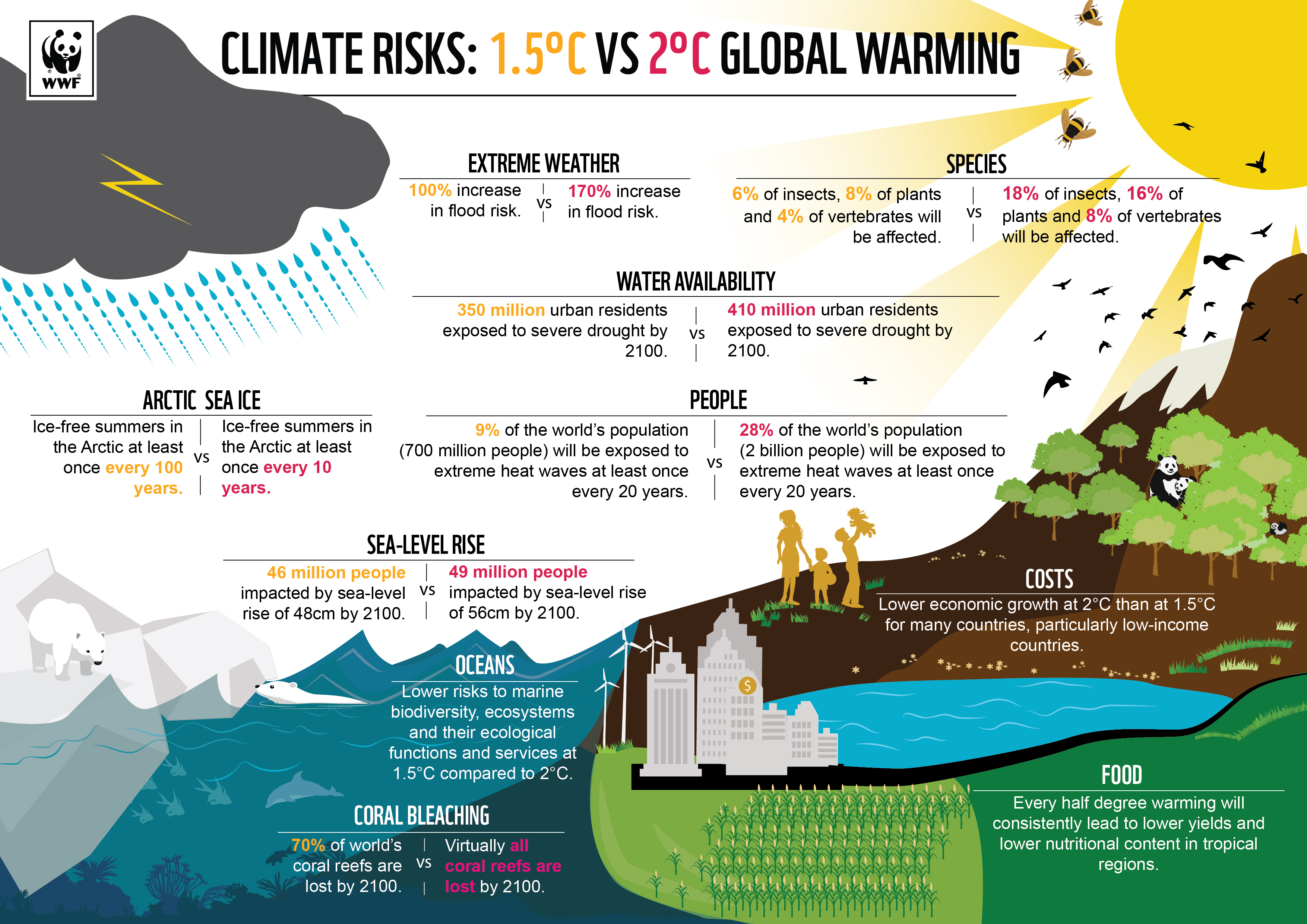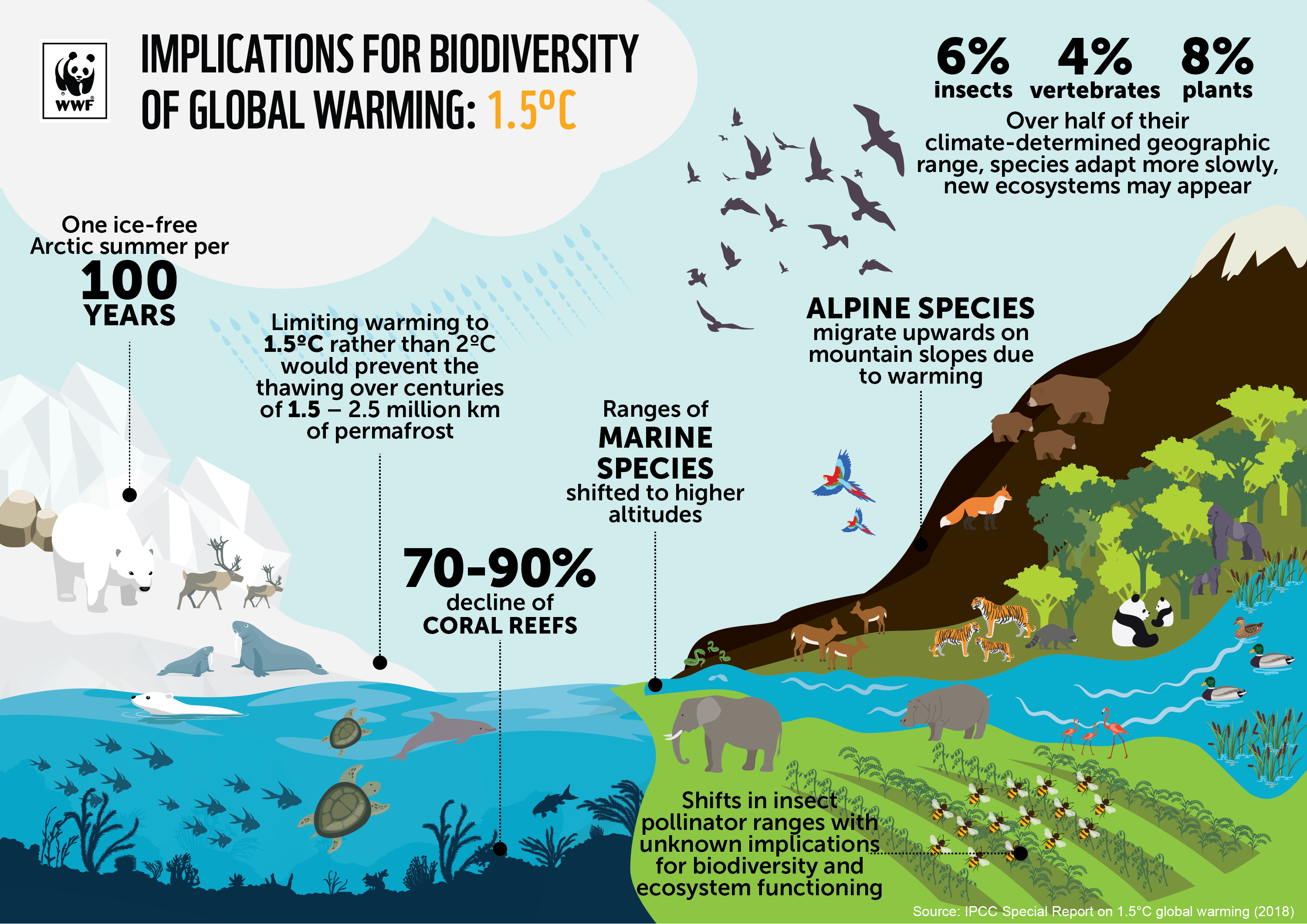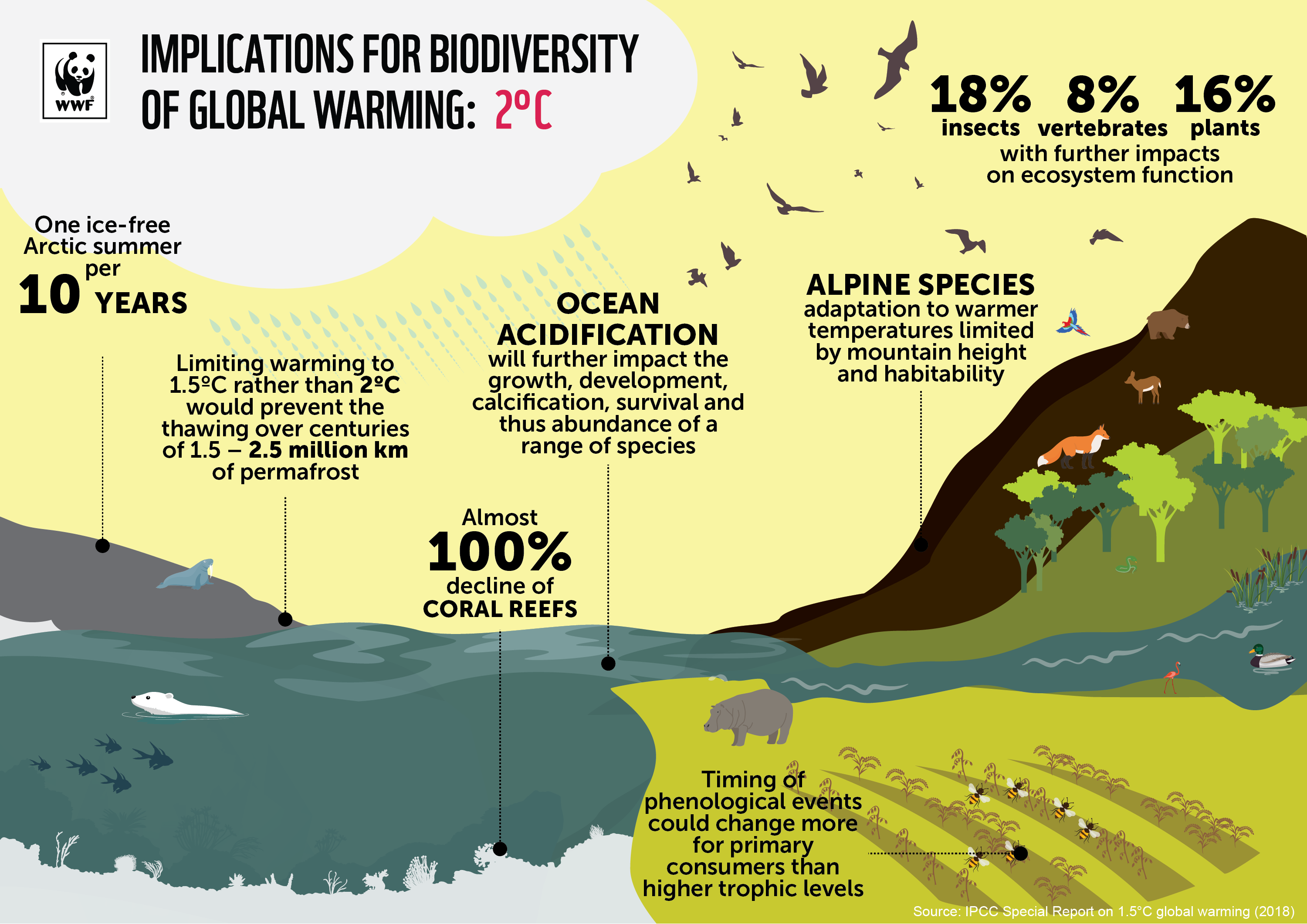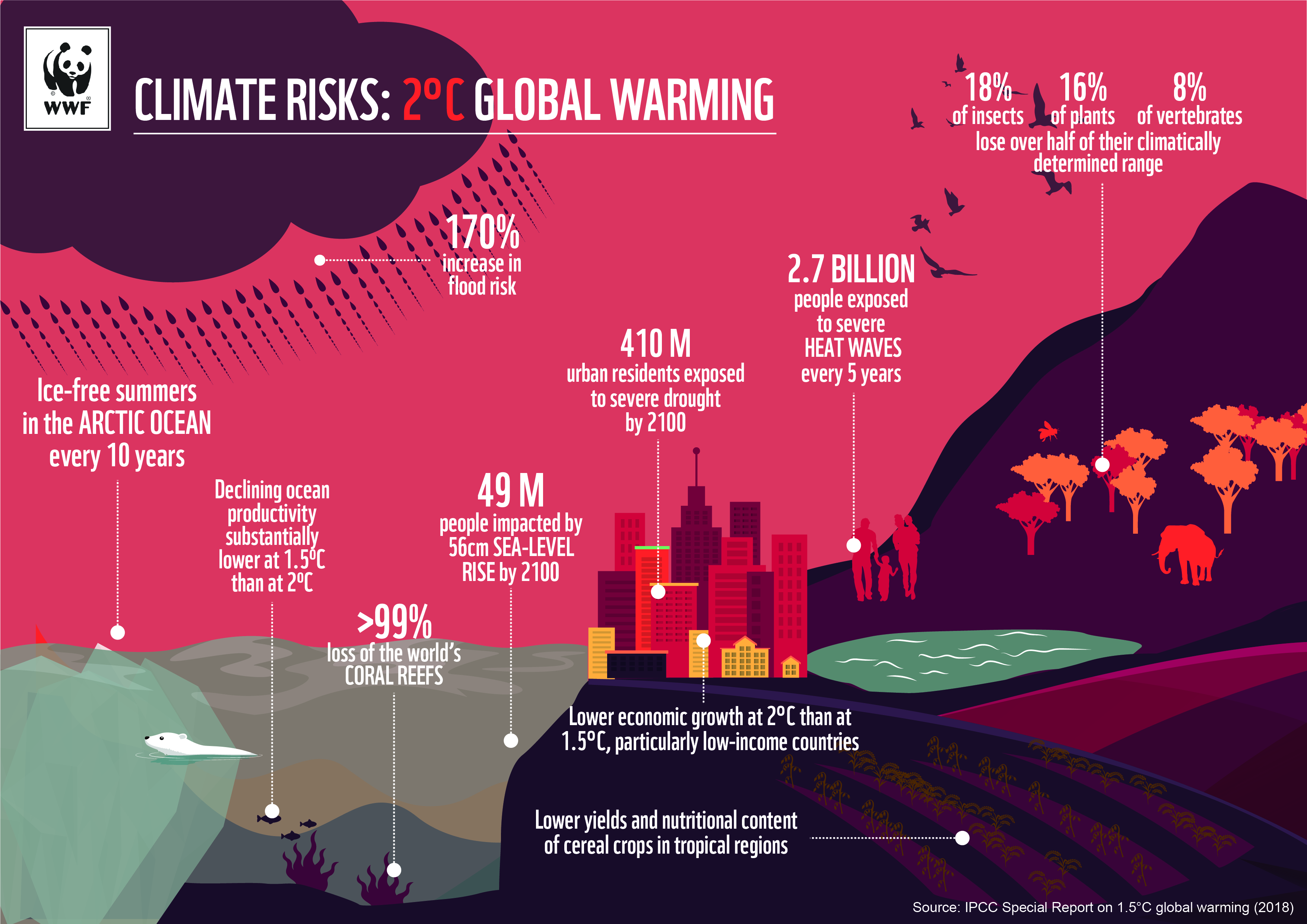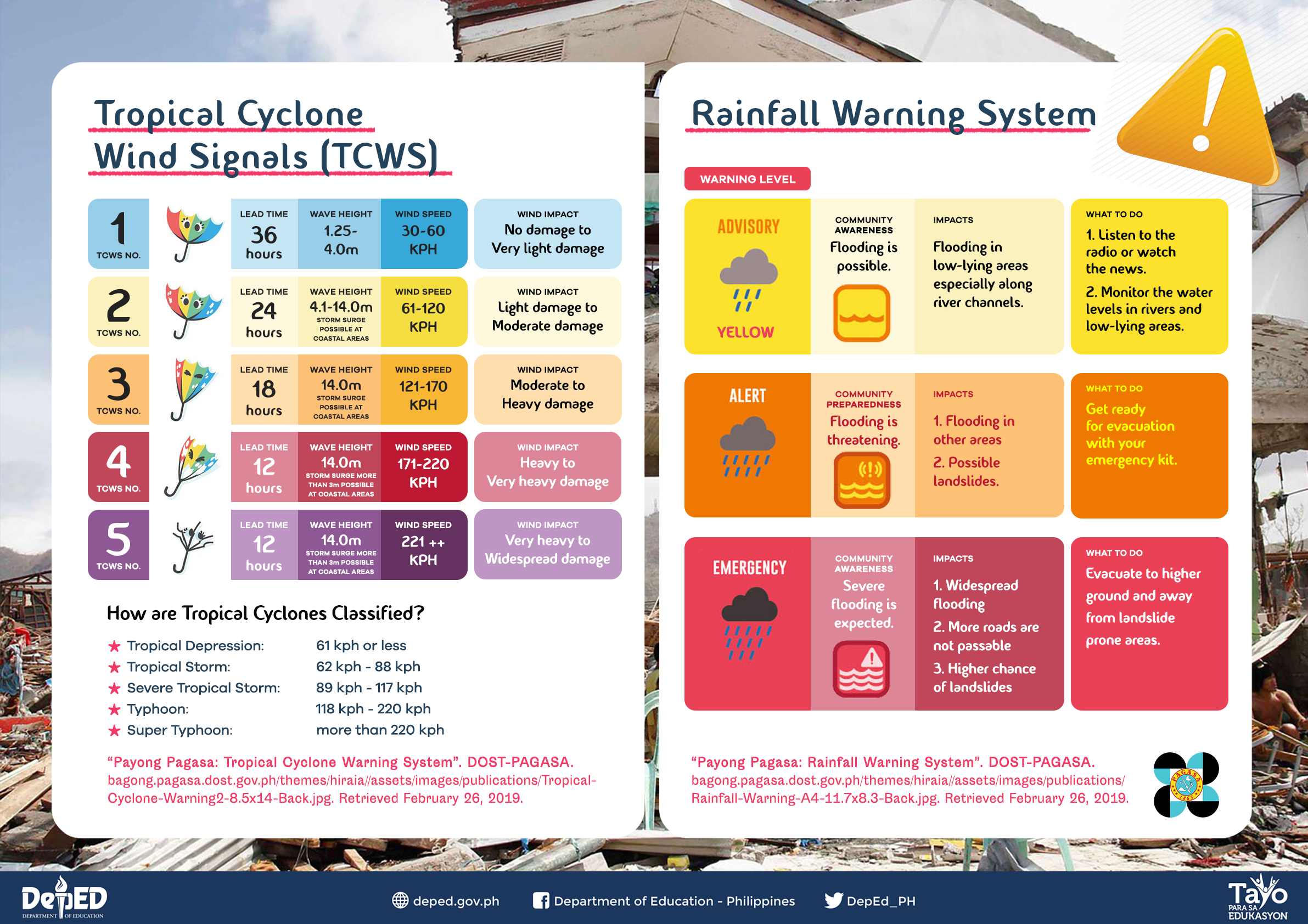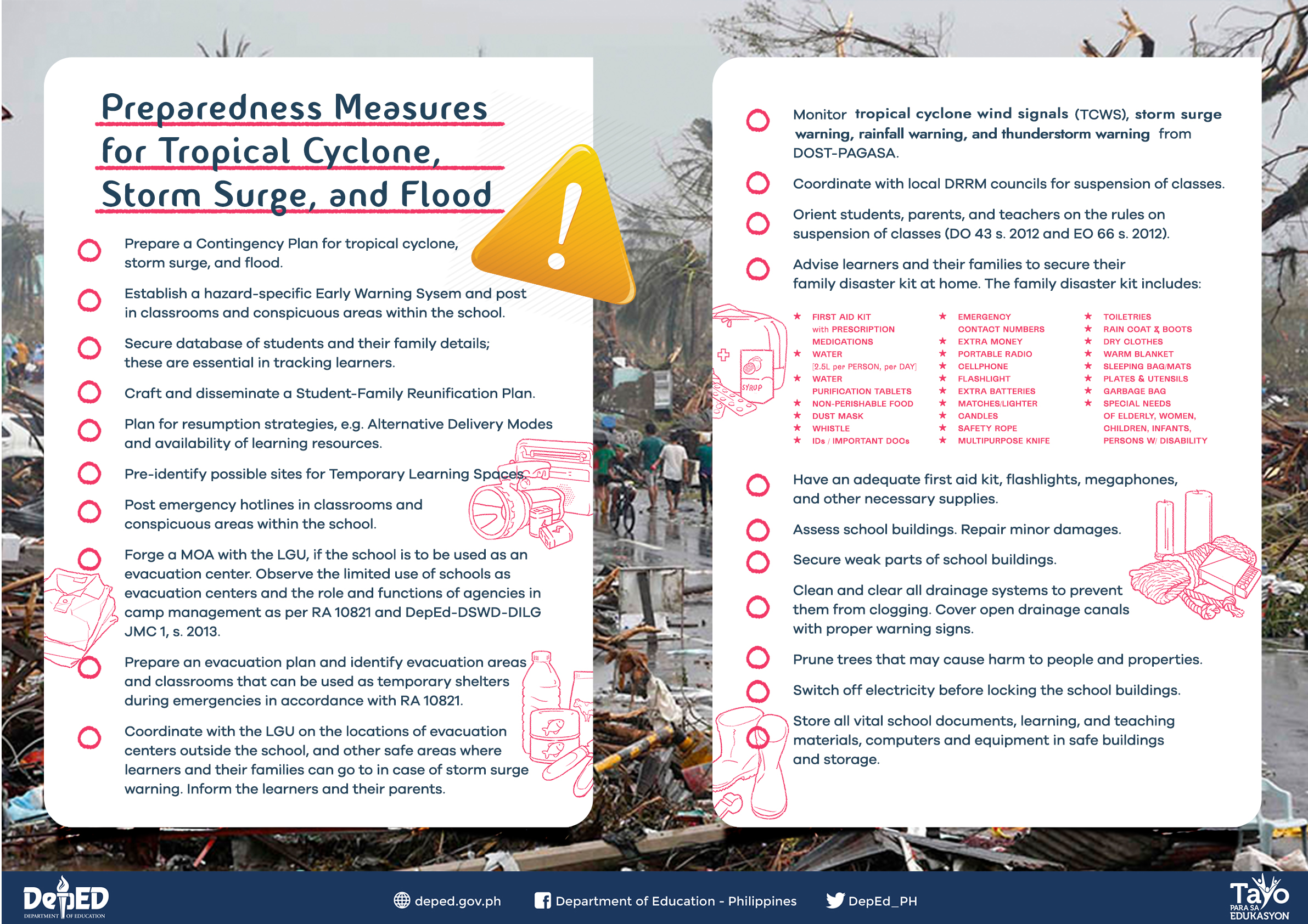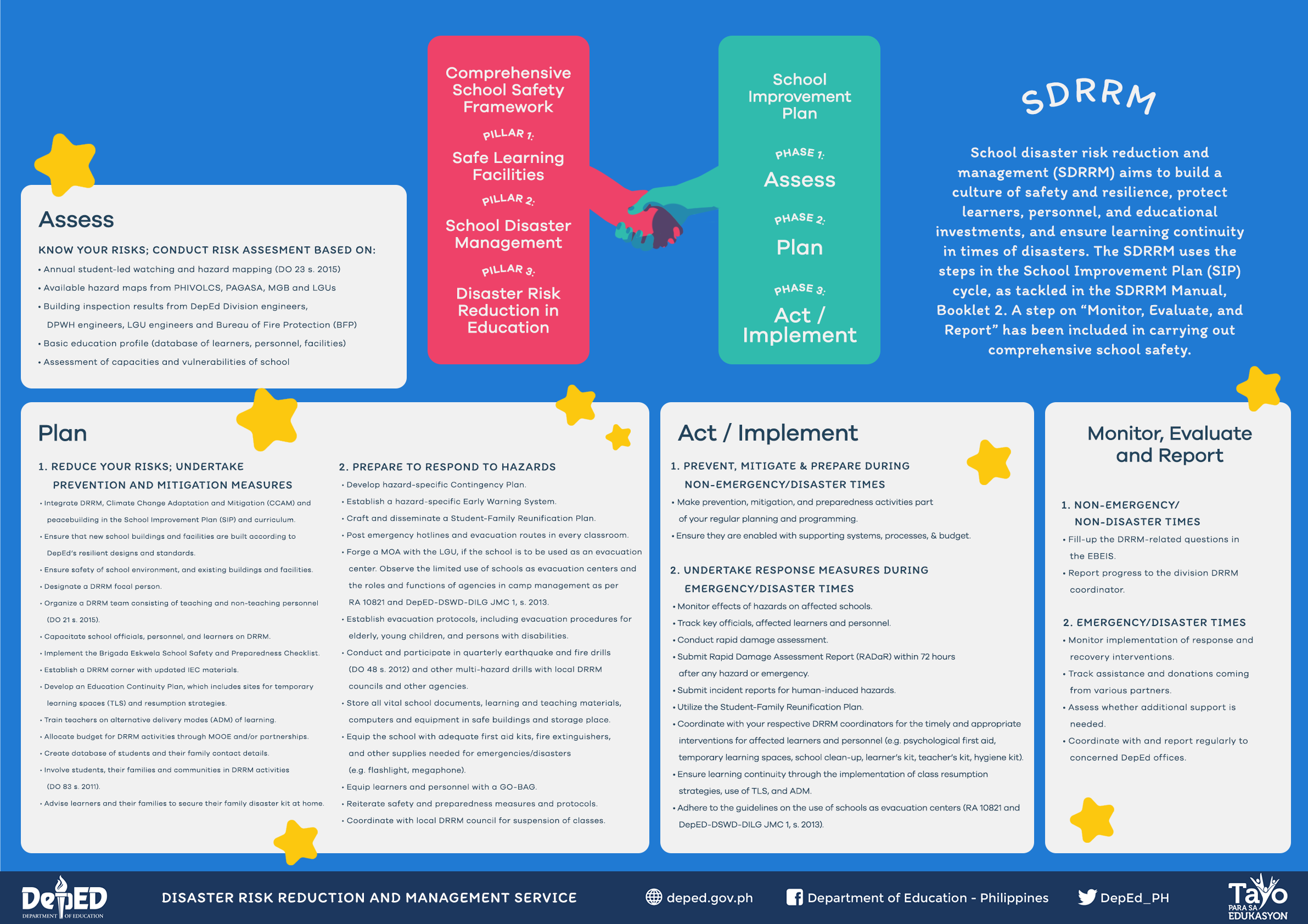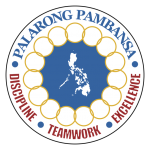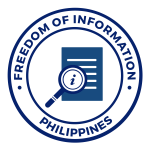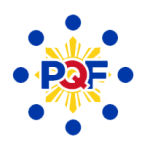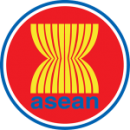CLIMATE SCIENCE
Source: Climate Change Commission (CCC)
This brochure includes key information on climate change in the Philippine including its causes, impacts, and government action.
Topics:
- What is Climate Change?
- What is the cause Climate Change?
- What is the cause Greenhgouse Effect?
- What are the approaches to address the impacts of Climate Change?
Read Here
Climate Change Commission Philippines. (n.d.). The Basics of Climate Change [Brochure]. Author. Retrieved from https://climate.gov.ph/files/The-Basics-of-Climate-Change.pdf
Source: World Wide Fund for Nature (WWF)
This article clarifies common myths and misconceptions about climate change.
Topics:
- Myth 1. The earth's Climate has always changed
- Myth 2. Plants need carbon dioxide
- Myth 3. Global warming isn't real as it's still cold
- Myth 4. Climate change is a future problem
- Myth 5. Renewable energy is just a money-making scheme
- Myth 6. Polar bear numbers are increasing
- Myth 7. Renewable energy can only work when it's not cloudy or windy
- Myth 8. Animals will adapt to climate change
- Myth 9. Getting rid of humans will fix this
- Myth 10. China is the only country responsible for climate change
Read Here
Source: GIZ through CCC
The series of infographics highlights the implications of climate change to different sectors. It includes the impacts of climate change and the recommended adaptation and mitigation practices.Agriculture
GIZ. (n.d.). Agriculture - Managing Risk and Enhancing Resilience. Retrieved from https://climate.gov.ph/files/Agriculture_Infographic_Web_EN.pdf
Buildings
GIZ. (n.d.). Building for a Low-carbon Future. Retrieved from https://climate.gov.ph/files/Buildings_Infographic_Web_EN.pdf
Cities
GIZ. (n.d.). Cities on the Front Line of the Changing Climate. Retrieved from https://climate.gov.ph/files/Cities_Infographic_Web_EN.pdf
Extractives and Primary Industries
GIZ. (n.d.). Risk and Opportunities for Extractive and Primary Industries. Retrieved from https://climate.gov.ph/files/Extractives_Infographic_Web_EN.pdf
Energy
GIZ. (n.d.). Energy Sector Faces Major Challenges from Climate Change. Retrieved from https://climate.gov.ph/files/Energy_Infographic_Web_EN.pdf
Transport
GIZ. (n.d.). Transport Demand on the Rise. Retrieved from https://climate.gov.ph/files/Transport_Infographic_Web_EN.pdf
Source: Intergovernmental Panel on Climate Change (IPCC)
The IPCC Special Report on Global Warming of 1.5 ºC warns on the impacts of global warming of 1.5 °C above pre-industrial levels and related global greenhouse gas emission pathways.
Topics:
- Understanding the impacts of 1.5°C global warming
- Why is it necessary and even vital to maintain the global temperature increase below 1.5°C versus higher levels?
- Global response to warming of 1.5°C
Read Here
Intergovernmental Panel on Climate Change (IPCC). (n.d.). Global Warming of 1.5 ºC. Retrieved from https://www.ipcc.ch/sr15/
Source: WWF
This article summarizes the IPCC Special Report on Special Report on Global Warming of 1.5℃Read Here
WWF. (8 October 2018). Our Warming World: How Much Difference Will Half-A-Degree Really Make? Retrieved from https://www.wwf.org.uk/updates/our-warming-world-how-much-difference-will-half-degree-really-make
This is a chatbot that will help you engage with climate change skeptics.
Click the link: https://bit.ly/ClimateChangeSkeptics
Note: The link will direct to the messenger of David Suzuki as the chatbot is hosted by their account for free.
Climate Change in the Philippines
Source: Philippine Atmospheric, Geophysical and Astronomical Services Administration (PAGASA)
This resource shows the climate change scenarios, current climate and observed trends, climate projects, and impacts of climate change localized to the Philippines.Topics:
- Climate Change Scenarios
- Current Climate and Observed Trends
- Climate Projections
- Impacts of Climate Change
Read Here
PAGASA. (n.d.). Climate Change in the Philippines. Retrieved from http://bagong.pagasa.dost.gov.ph/information/climate-change-in-the-philippines
Source: Climate Change Commission (CCC)
This highlights the key findings of the IPCC Fifth Assessment Report, the impacts of climate change in the Philippines, and the actions undertaken by the Government of the Philippines to address climate change.Topics
- Key Findings of the IPCC Fifth Assessment Report
- Climate negotiations timeline
- Impacts of Climate Change in the Philippines
Read Here
Climate Change Commission. (n.d.). Executive Brief of Climate Change and the Philippines. Retrieved from https://niccdies.climate.gov.ph/files/documents/Climate%20Change%20and%20the%20Philippines%20Executive%20Brief%202018-01.pdf
Source: Oscar M. Lopez Center for Climate Change Adaptation and Disaster Risk Management Foundation, Inc. (OML Center)
The first of its kind in the country, The Philippine Climate Almanac highlights record-breaking and other significant statistics of climate-related variables, extreme events, and disasters across seven decades through data visualizations that we hope audiences outside the scientific and academic communities find compelling.Topics
- Climate Types
- The Philippine Climate Calendar
- Data on tropical cyclones based on observational records by PAGASA at the time of the event./li>
Read Here
Oscar M. Lopez Center. (2018, December 25). The Philippine Climate Almanac. Retrieved from https://www.omlopezcenter.org/the-philippine-climate-almanac
Source: OML Center and CCC
The Philippine Climate Change Assessment Report (PhilCCA) synthesizes scientific information from international and local literature in order to provide an assessment of climate change for the Philippines and identify gaps in the scientific literature. It contains comprehensive information on climate change science in the Philippines that can guide everyone in making strategic decisions. The PhilCCA has three volumes, namely:-
- Working Group I: The Physical Science Basis
- Working Group II: Impacts, Adaptation and Vulnerability
- Working Group III: Mitigation of Climate Change
Read Here
Oscar M. Lopez Center. (2019, January 28). The Philippine Climate Change Assessment. Retrieved from https://www.omlopezcenter.org/the-philippine-climate-change-assessment
Source: OML Center and PAGASA
Started in 2015, the State of the Philippine Climate is a yearly annual report that provides a summary of observations of the country’s climate and climate-related disasters.Topics
- State of the Philippine Climate per year
Read Here
Oscar M. Lopez Center. (2017, February 21). The State of the Philippine Climate. Retrieved from http://www.omlopezcenter.org/state-of-the-philippine-climate
Source: UNICEF
This report provides the essential baseline information on the climate, environmental and energy issues affecting children in the country and includes recommendations—including the involvement of youth as champions against climate change.Topics
- How climate, environment and energy issues affect Filipino children
Read Here
Klauth, C. & Ortega J. B., (2017, July). Climate Landscape Analysis for Children in the Philippines. Retrieved from https://www.unicef.org/philippines/reports/climate-landscape-analysis-children-philippines
Adaptation and Mitigation
Source: Climate Change Commission (CCC)
As stated in the Climate Change Act (Republic Act 9729), the CCC drafted the National Climate Change Action Plan (NCCAP) for 2011 to 2028. The NCCAP prioritizes food security, water sufficiency, ecological and environmental stability, human security, climate-smart industries and services, sustainable energy, and knowledge and capacity development as the strategic direction for 2011 to 2028.Topics
- Food Security
- Water Sufficiency
- Ecological and Environmental Stability
- Human Security
- Climate-Smart Industries and Services
- Sustainable Energy
- Knowledge and Capacity Development
- Cross-cutting Actions
- Means of Implementation
- Monitoring and Evaluation
Read Here
Climate Change Commission. National Climate Change Action Plan 2011-2028. (2011).
Source: Climate Change Commission (CCC)
This document details the process how the Nationally Determined Contribution (NDC) of the Philippine was adopted.Topics
- Paris Agreement and the Nationally Determined Contribution
- Developing the Nationally Determined Contribution
Read Here
Climate Change Commission. Development of the Philippines' Nationally Determined Contributions.
Source:Project Drawdown
Project Drawdown lists the solutions to climate change: reducing emissions, supporting carbon sinks, and improving society. It ranks the individual and societal changes that need to happen based on the emission sources.Topics
- Climate Solutions by Sector
- Programs
Read Here
Project Drawdown. (n.d.). Project Drawdown: Climate Solutions. Retrieved from https://drawdown.org
Source: United Nations
This booklet is part of the “170 Series” launched by the Perception Change Project of the UN. It gives you 10 suggestions for each of the 17 SDG goals about what you can do on a daily basis to protect the environment and help mitigate climate change effects.Topics
- Climate Solutions
- Programs
Read Here
United Nations. (n.d.). 170 Actions to Combat Climate Change. Retrieved from http://sdghelpdesk.unescap.org/sites/default/files/2020-06/PCP170_actions5.pdf
Source: DepEd DRRMS
You may use the following infographics by DepEd DRRMS on rainfall preparedness.DepEd DRRMS. Rainfall Preparedness Infographics. (2019).
Teaching Climate Change
Source: Plan International
This report reviews Plan International's Child-Centred Climate Change Adaptation (4CA) programme, a 3-year project which took place from 2011-2014. The project aimed to build the awareness of children and their communities to the effects of climate change and to empower them to be active participants in adaptation to climate change.Topics
- Climate Change Adaptation Projects
Read Here
Plan International. (n.d.). Act to Adapt: The Next Generation Leads the Way! Child-Centred Climate Change Adaptation (4CA). Retrieved from https://plan-international.org/publications/act-adapt-child-centred-climate-change-adaptation
Source: United Nations University Institute for the Advanced Study of Sustainability
This policy brief outlines the education programs needed to translation climate education into action. It recommends increasing participation of learners to actual climate solutions, creating schools that reflect climate-responsive and resilient policies, and involving adults to reinforce the education learned in schools.Topics
- Education and Climate Change
- Recommendations to increase participation of learners to climate action
Read The Article Here
Vaugther, P. (2016). Climate Change Education: From Critical Thinking to Critical Action. Retrieved from https://collections.unu.edu/eserv/UNU:3372/UNUIAS_PB_4.pdf
Source: Young People
Moved by the climate realities faced by the Philippines and inspired by Greta Thunberg, Swedish climate activist, young Filipinos all over the nation took part in the Climate Strike, a movement of young people to call for governments and private sector in prioritizing climate justice. DepEd supports this call through the release of Office of the Undersecretary (OUA) Memos 12-1119-0504 and 12-019-0341 for the 2019 Climate Strike, OUA Memo 00-0420-0059 for the 2020 Digital Earth Day Strike, and OUA Memo 00-0920-0168 for the 2020 Climate Strike where it encouraged personnel and learners to engage in climate action on the said dates and enjoined teachers and school heads to excuse the absence of learners who joined the climate strike provided parent/guardian’s letter is presented.Topics
- Climate Action
Visit the Youth Strike 4 Climate Philippines Facebook Page here
Youth Strike 4 Climate Ph. (n.d.). In Facebook [Environmental Conservation Organization]. Retrieved from https://www.facebook.com/youthstrike4climatePH/
Source: UNESCO
Global Citizenship Education (GCED) is UNESCO’s response to the challenges of human rights violations, inequality, poverty, conflict, and unsustainable practices amidst increasing connectedness. It works by empowering learners of all ages to understand that these are global, not local issues and to become active promoters of more peaceful, tolerant, inclusive, secure and sustainable societies.Learn More Here
UNESCO. (n.d.). Global Citizenship Education. Retrieved from https://en.unesco.org/themes/gced
Source: UNESCO
Education for Sustainable Development (ESD) empowers people to change the way they think and work towards a sustainable future. It is about including sustainable development issues, such as climate change and biodiversity into teaching and learning. Individuals are encouraged to be responsible actors who resolve challenges, respect cultural diversity and contribute to creating a more sustainable world.Learn More Here
UNESCO. (n.d.). Education for Sustainable Development. Retrieved from https://en.unesco.org/themes/education-sustainable-development
Other materials can be found at the learning resources page.
Free Online Courses
Source: Global Citizenship Education (GCED) Online Campus funded by UNESCO Asia-Pacific Centre of Education for International Understanding (APCEIU)
This 4-week course seeks to provide learners to understand the terms, concepts, and background knowledge of climate change, as well as the global efforts and international agenda that are taking place to address the issue.Sessions:
- introduction to climate change
- anthropogenic drivers of climate change
- societal and environmental implications of climate change international efforts to climate change
Join the Online Campus
Source: Microsoft and WWF
This learning path, developed by WWF, aims to help you further your understanding of sustainability and equip you with relevant information, tools, activities and good ideas from other skilled practitioners to make Education for Sustainable Development a cornerstone of your teaching practice.
Start the Course
Source: United Nations Institute for Training and Research (UNITAR)
UN CC:Learn provides guidance and quality learning resources to support people, governments and businesses to understand, adapt, and build resilience to climate change.
Explore the Online Portal
Source: Humanitarian Leadership Academy
Kaya is a free humanitarian learning platform where you can find online self-directed courses and pathways, MOOCs (Massive Open Online Courses), webinars, games, quizzes and assessments, and others. The topics re about humanitarian topics like climate change, disaster risk reduction and management, peace, and operations among others.
Explore the Platform
Source: Philippine Disaster Resilience Foundation (PDRF)
Innovations Academy for Disaster Awareness, Preparedness, and Training (iADAPT) is PDRF’s eLearning solution that aims to equip Filipinos with the right set of tools, skills, and resources they need to be confidently ready to face any type of disaster.
Explore the Online Portal
Source: ClimateScience
ClimateScience was founded to provide credible, accessible and entertaining source of information on climate change solutions. You will find free online courses, books for children, and lesson plans!
Explore ClimateScience





